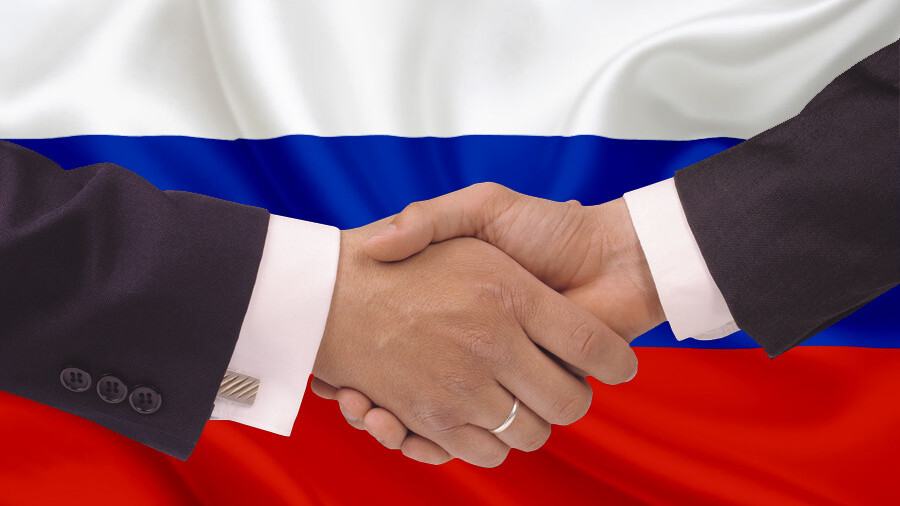
Former British Prime Minister Winston Churchill once famously said: “Russia is a riddle wrapped in a mystery inside an enigma.” Even though Russia has undergone extraordinary political and cultural transformations and successfully embraced Western-style capitalism after the collapse of the Soviet Union in 1991, many people in the West still regard Russian business culture as very mysterious, incredibly intricate and difficult to understand.
I am originally from Russia and currently live in Moscow, although previously, I studied, worked and lived in France and the UK. I now work for a Russian tech company and mostly deal with foreign colleagues from all over the world. Often, the people I meet seem surprised that I am Russian.
Given my own experience, I can admit that Russian businessmen have to deal with a lot of myths and stereotypes about Russians. These may be true sometimes, but a lot of the time these myths turn out to be completely wrong.
Despite the tense political and complex economic situation, Russia still remains an important player on the global stage and undoubtedly does have massive business potential. In order to be successful in negotiating and establishing relations with Russian business partners and embrace all the existing opportunities, one needs to learn some valuable tips about getting along with Russians.
Myth 1: Russians do not smile
While smiling is usually seen as one of the most important communication behaviors, Russian people are often accused of being gloomy. However, contrary to popular opinion — Russians DO smile, but only when there is an appropriate reason to. We smile in specific social situations, for example, when something is really funny or a person is very happy. Russians never just smile out of simple politeness, but when we do — one can be sure these smiles are sincere.
Surprisingly, sometimes smiling in a work or study environment is not seen as appropriate in Russia – except for employees of a Western corporate environment who are expected to follow the Western style of communication. This is because ‘serious contexts’ are not considered to be a place to smile.
Not smiling to strangers is thought to be a cultural norm in Russia, since it is assumed that there is no special reason why we should greet a stranger that way. Some Russians are a bit shy when speaking English and when they see someone who doesn’t speak their mother tongue, they can get frustrated.
Myth 2: Russians are rude and aggressive
Sometimes it’s quite hard to understand Russians because of their high level of emotionality. Compared to their Western colleagues, business partners in Russia can be more direct, critical and challenging. In fact, they are not impolite, just not playing the so-called ‘small talk’ or ‘mind games’. Russian can say straight to your face everything they think, which is often seen as rude in the West. On the contrary, in Russia, that means people are actually interested and they want to know more about what you are delivering to them.
Russians value everything real, true and honest. They can fight and argue with you at the beginning just to understand who you really are and what you stand for. If you act sincere and play real, they will like you and eventually become your true friend. Keep in mind that good business relationships in Russia are always personal and in many cases business and its outcome depends on how well you can get along. In this sense, Russian culture is similar to Oriental cultures.
Myth 3: Russians never plan ahead and do not set long-term goals
From time to time, Western partners tend to be surprised by Russians missing or even ignoring deadlines. It is partly true: small Russian enterprises and startups are not keen on planning, putting emphasis on the present rather than the future. However, large Russian companies are nothing different from the West: planning is necessary and employees have to set long-term goals and stick to deadlines.
That being said, a good part of the Russian mentality is a high level of crisis mobilization: in urgent situations, Russians tend to unite under pressure and mobilize. They may eventually deliver impressive results under tight deadlines or stressful circumstances.
A good example of this could be the so-called Singles’ Day, the annual global shopping festival organized by Chinese online retailers on November 11th. According to Yandex.Checkout, last year’s stats from the sale saw the YTY 31-fold increase in orders from Russia. All the Russian and Chinese employees demonstrated impressive results and personal dedication to work.
Myth 4: Russian companies are not competitive with Western companies
Contrary to popular Western opinion, there are many Russian companies that have accepted and embraced international standards of business etiquette. Those Russian businesses are very well aware of international trends and that ensures the flexibility of business process and make them strong competitors for many Western companies.
Let’s not forget that 40 percent of US Fortune 500 companies were founded by either immigrants or the children of immigrants, many of whom have Russian origin.
Even though Russia’s economy has been tumultuous, a strong technological and entrepreneurial culture has developed in the country over the last five years and produced a number of fast-growing businesses. For instance, Russian tech is big, powered by programmers and developers who are able to solve non-trivial tasks and want to change the world with the help of cutting-edge technologies.
Some companies of Russian origin have already gone global and proved to be successful internationally (Telegram, Kaspersky Lab, AnywayAnyday, Abbyy, Game Insight, Xsolla to name a few). Other tech companies with Russian roots are just about to make their first big step onto the international scene but are already considered promising.
Myth 5: Russians are not aware of international trends and innovations
I travel quite a lot and was pretty surprised to discover that some things in Russia are way more innovative compared to Europe and even the USA. In the US, additional features are often provided by separate startups, Russian banks prefer to keep this functionality in-house as it gives them more control and room for development.
In constant pursuit of new clients, Russian banks have been moving more of their services online, merging Internet and mobile technology to bank the unbanked in Russia and other CIS countries. As a result, Russian banks and PSPs are ceasing to be ‘banks’ in their pure form, and are becoming more of ecosystems with a full range of services, available online.
The most important banking advancement in Russia is mobile banking which can be used by customers to carry out most necessary transactions independently without the need to visit the bank in person. According to the Global Finance Magazine’s 2016 list, the best banking app in Central and Eastern Europe is Sberbank’s mobile banking app.
Russian banks and PSPs are offering a wide array of additional instant services in apps, such as online payments for utility, parking, taxes, traffic fines and so on. Yandex.Checkout was the first in Russia to provide peer-to-peer money transfers via iMessage and also to enable online stores to accept payments via Telegram Bots, allowing their customers to pay for goods and services directly in the messenger.
Furthermore, contactless payment systems, such as Apple Pay and Samsung Pay, are quickly gaining popularity in Russia, being used mostly for online shopping, food delivery, housing services, cellular networks, and money transfers.
Myth 6: When entering the Russian market, it’s better to partner with international companies
There is a widespread belief that it’s easier to partner with international companies when entering a new market. However, the specifics of the Russian market prove it’s wiser to work with local leaders, who have much more business expertise and knowledge of the market.
In Russia, just like China, localization is the key to business success. Thus, try to invest more time and effort into finding the appropriate local Russian partner who you can trust, and build a good relationship with them.
Overall, the Russian market is quite unique: innate cultural beliefs and traditions mingle with new business attitudes and prosperity. Having boundless natural resources, with a highly educated population, aspirational and consumerist in nature, Russia offers tremendous opportunities for international players who know how to navigate the business climate. Therefore, do your homework properly and try your best to see things through Russian cultural lenses.
Get the TNW newsletter
Get the most important tech news in your inbox each week.





